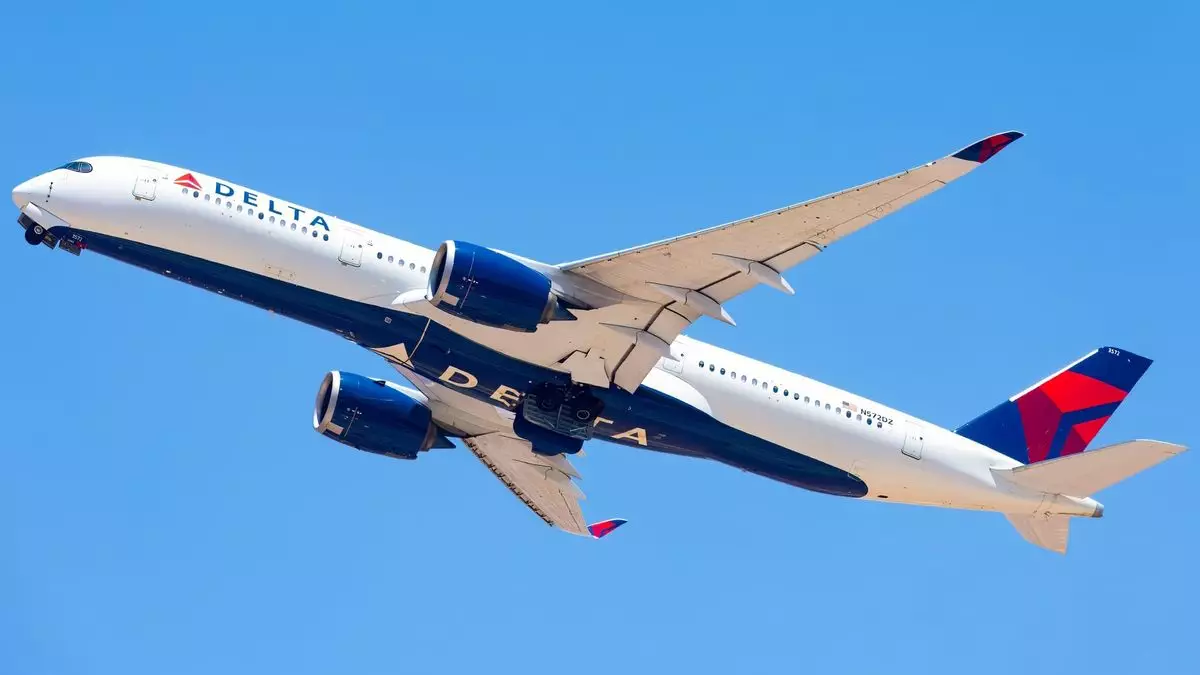Delta Air Lines, one of the nation’s leading airlines, recently made a decisive move by retracting its guidance for 2025, revealing the extent to which the ongoing trade war has unsettled the airline and the broader travel sector. Company CEO Ed Bastian articulated the situation succinctly: with “broad economic uncertainty around global trade,” Delta finds itself grappling with stalled growth and dampened consumer confidence. This development serves as a critical reminder that even the most robust businesses can be dramatically affected by external economic factors. Delta’s strategy appears to focus on maintaining stability by limiting capacity growth and managing costs diligently—an approach that speaks to the airline’s commitment to protect its margins and cash flow in the face of adversity.
Mixed Financial Performance Under Growing Pressure
In light of recent challenges, Delta’s first-quarter financial results showcased a stark juxtaposition between profitability and market sentiment. The airline posted earnings of $240 million, translating to 37 cents per share, a marked increase from the minimal profits made the previous year. Analysts had anticipated a lesser result, suggesting that Delta’s financial management is still operating at a level that exceeds expectations even amidst broader economic challenges. However, the company’s stock figures illustrate a different narrative, dropping significantly as investors reacted to overarching fears tied to rising tariffs. This dichotomy raises questions about the inherent disconnect between market perceptions and underlying company performance—a phenomenon that many companies in sensitive sectors are currently navigating.
Revenue Streams and Consumer Behavior
Despite achieving a quarterly operating revenue of $14.04 billion—surpassing Wall Street’s estimates—Delta faces a shifting landscape characterized by changing consumer behaviors and reduced spending clarity. The average fuel price decrease is a small silver lining in a broader context where caution among consumers and corporations alike signals an impending slowdown in travel demand. Driven by uncertainty regarding economic conditions, stakeholders have begun pulling back on discretionary spending, which invariably includes travel. This behavioral change hints at a deeper trend that may extend well beyond Delta and hold implications for the entire airline industry.
The Complications of Trade Wars
The escalating trade war has produced ripples across industries, particularly in sectors that rely on consumer spending and business travel. Delta’s previous forecasts for strong travel demand have since been overshadowed by economic ambiguity, underscoring the volatility that companies must contend with in a strained geopolitical climate. The airline’s decision to forgo a concrete full-year outlook and instead focus on the upcoming quarter highlights an adaptive strategy aimed at mitigating potential risks. Bastian’s outlook of profitability within a range of $1.5 billion to $2 billion for the June quarter signals an attempt to instill confidence among stakeholders, even as broader indicators suggest a contraction in travel willingness.
From Optimism to Realism
The rapid shift from optimism to realism has left many airline executives, including Delta’s president Glen Hauenstein, grappling with their previous projections. Only months ago, Hauenstein expressed confidence in continued margin expansion and strong performance. The current climate exposes the fragility of such assertions when market conditions become influenced by unforeseen circumstances. The originally projected earnings of over $7.35 per share for 2025 now seem increasingly elusive as Delta adjusts its strategies to face the realities of diminishing consumer and corporate confidence.
Current Position and Future Implications
As Delta Air Lines forges ahead, the uncertainty surrounding U.S. trade policy continues to loom large, impacting the airline’s operational forecasting and financial outlook. With a focus on managing costs and capital expenditures while seeking to stabilize its revenue streams, Delta embodies the resilience required to navigate through these tumultuous times. The airline’s experience underscores a key lesson for corporate leaders: adaptability amid uncertainty is not merely an option but a necessity for survival. Rather than succumbing to market pressures, Delta’s adaptive strategies might just fortify its standing in an ever-evolving sector. As the rest of the industry watches closely, Delta’s ability to pivot and respond to these challenges will undoubtedly shape its trajectory in the coming years.


Leave a Reply